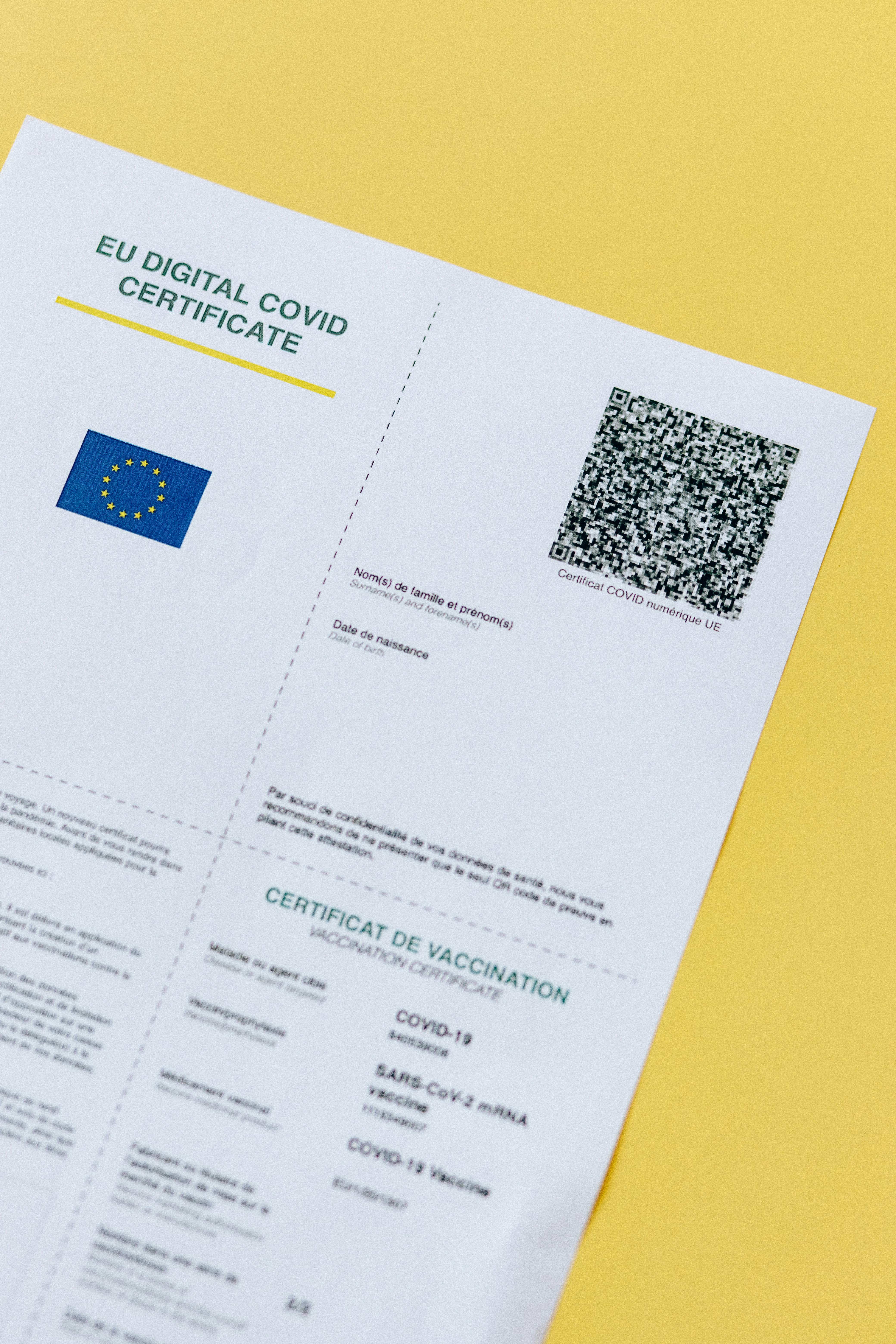In the fast-paced digital world, data security has become a paramount concern for businesses and individuals alike. With the increasing threat of cyberattacks and data breaches, it is crucial to adopt advanced technologies to safeguard sensitive information. Azure Confidential Computing, a groundbreaking solution provided by Microsoft, offers a new level of security by keeping data encrypted and confidential even while in use. This article explores how Azure Confidential Computing guarantees data protection, providing peace of mind to organizations and users alike. Whether it’s keeping financial transactions secure or protecting critical intellectual property, Azure Confidential Computing is revolutionizing the way we ensure data security in the digital age.

Understanding Azure Confidential Computing
What is Azure Confidential Computing?
Azure Confidential Computing is a revolutionary approach to data protection that aims to keep your sensitive data safe and secure at all times. It is a trusted and confidential cloud platform that allows you to run your applications and store your data in a secure enclave, keeping them isolated and protected from unauthorized access.
How does Azure Confidential Computing work?
Azure Confidential Computing leverages hardware-based Trusted Execution Environments (TEEs), such as Intel SGX, to create secure enclaves within which your critical data can be processed. These enclaves ensure that even the cloud provider, Microsoft Azure, cannot access or view your data. The data and computations performed within these enclaves are fully protected, preserving confidentiality and integrity.
Benefits of Azure Confidential Computing
There are several significant benefits of using Azure Confidential Computing for data protection. Firstly, it provides a high level of security by encrypting sensitive data even while it is being processed. This helps protect against attacks that attempt to exploit vulnerabilities in the hosting environment. Secondly, it allows you to maintain full control over your data by keeping it isolated from the cloud provider and other tenants. Lastly, Azure Confidential Computing simplifies compliance with regulatory requirements by providing a trusted environment for processing and storing sensitive data.
Ensuring Data Protection with Azure Confidential Computing
Securing data at rest
When it comes to securing data at rest, Azure Confidential Computing provides robust mechanisms to safeguard your information. Encryption is a critical component of data protection, and Azure offers various encryption options. You can utilize Azure Disk Encryption to encrypt your virtual machine disks, safeguarding your data while at rest. Additionally, Azure Storage Service Encryption provides automatic encryption for your data stored in Azure Storage accounts.
Securing data in transit
Securing data while it is being transferred is equally essential. Azure Confidential Computing ensures the protection of your data in transit by using secure network protocols such as Transport Layer Security (TLS) and Secure Sockets Layer (SSL) to establish encrypted connections between clients and services. By enforcing the use of these protocols, Azure guarantees that your data remains secure throughout its journey.
Securing data in use
The most innovative aspect of Azure Confidential Computing is its ability to secure data even while it is being processed. This is achieved through the use of hardware-based Trusted Execution Environments (TEEs). TEEs, such as Intel SGX, provide a secure enclave where your sensitive code and application logic can run, safeguarding them from unauthorized access. Azure Confidential Computing leverages TEEs to ensure that even the cloud provider and other tenants cannot access or tamper with your data while it is in use.

Securing Data at Rest
Encryption mechanisms
Azure offers comprehensive encryption mechanisms to protect your data at rest. Azure Disk Encryption provides the capability to encrypt virtual machine disks using industry-standard encryption algorithms. This ensures that even if an attacker gains access to the physical storage, they won’t be able to read or modify your data without the encryption keys.
Azure Key Vault integration
Azure Key Vault integration is another powerful feature of Azure Confidential Computing. By utilizing Azure Key Vault, you can securely store and manage encryption keys, certificates, and other secrets used to protect your data. This integration ensures that your encryption keys are stored and managed in a highly secure and centralized location, providing an additional layer of protection for your data at rest.
Data classification and access controls
To further enhance data protection, Azure Confidential Computing enables you to implement data classification and access controls. By classifying your data based on its sensitivity and applying appropriate access controls, you can ensure that only authorized individuals or processes can view or manipulate your sensitive information. This ensures that even if an attacker gains access to your storage, they won’t be able to access the most critical and sensitive data without proper authorization.
Securing Data in Transit
Secure network protocols
Azure Confidential Computing employs secure network protocols, such as Transport Layer Security (TLS) and Secure Sockets Layer (SSL), to safeguard your data in transit. These protocols establish encrypted connections between clients and services to prevent unauthorized access, interception, or tampering of your data while it is being transmitted.
Azure Virtual Network isolation
Azure Virtual Network isolation is another powerful security feature that helps protect your data in transit. By using virtual network isolation, you can create private networks within Azure, isolating your resources and preventing unauthorized access from external networks. This ensures that your data is transmitted securely and can only be accessed by authorized individuals or processes.
Secure data transfer mechanisms
To ensure the secure transfer of data, Azure Confidential Computing provides various mechanisms, such as Azure Storage Service Encryption, to automatically encrypt your data while it is being transferred to and from Azure Storage accounts. Additionally, Azure Virtual Network Gateways enable secure connectivity between virtual networks, ensuring that your data remains protected during transit within your Azure environment.

Securing Data in Use
Protecting sensitive code and application logic
Azure Confidential Computing addresses the critical aspect of securing data while it is being processed by providing protection for your sensitive code and application logic. By utilizing hardware-based Trusted Execution Environments (TEEs), Azure Confidential Computing creates secure enclaves where your code can run securely. This prevents unauthorized access to your code and ensures that it cannot be tampered with or exploited by attackers.
Hardware-based Trusted Execution Environments (TEEs)
The use of hardware-based Trusted Execution Environments (TEEs), such as Intel SGX, is a fundamental component of Azure Confidential Computing. TEEs provide a secure and isolated environment within which your sensitive code and application logic can execute. By utilizing TEEs, Azure ensures that your data is protected from unauthorized access, even by the cloud provider.
Confidential machine learning
Azure Confidential Computing extends its data protection capabilities to machine learning workloads as well. By allowing you to leverage the power of TEEs, Azure ensures that your machine learning models and training data remain confidential and private. This enables you to use sensitive datasets without the risk of data exposure or compromise, providing robust protection for your machine learning initiatives.
Managing Key Security
Azure Key Vault integration
Azure Key Vault integration plays a vital role in managing key security. By utilizing Azure Key Vault, you can securely store and manage encryption keys, certificates, and other secrets used to protect your data. This integration ensures that your keys are protected from unauthorized access, loss, or tampering, providing a secure and centralized location for key management.
Key management best practices
To enhance key security, it is essential to follow key management best practices. This includes implementing strong access controls and authentication mechanisms for your key vaults. Regularly rotating encryption keys and certificates is also recommended to minimize the risk of key compromise. By adhering to these best practices, you can ensure the long-term security of your data and maintain control over your encryption keys.
Secure key rotation
Secure key rotation is crucial for maintaining the integrity and security of your data. By regularly rotating your encryption keys, you can limit the potential impact of compromised keys or unauthorized access. Azure Confidential Computing offers built-in mechanisms and integrations with Azure Key Vault to facilitate secure key rotation, ensuring that your data remains protected even in the event of a key compromise.

Monitoring and Auditing
Azure Monitor
Azure Monitor provides comprehensive monitoring capabilities to ensure the security and integrity of your Azure Confidential Computing environment. It allows you to monitor the health and performance of your applications and infrastructure, providing real-time monitoring, alerts, and diagnostics. By utilizing Azure Monitor, you can proactively detect any potential security issues and ensure the smooth operation of your data protection measures.
Azure Security Center
Azure Security Center is a powerful tool for monitoring and managing the security of your Azure environment. It provides unified security management and advanced threat protection, allowing you to identify and respond to security threats in real-time. By utilizing Azure Security Center, you can gain insights into potential vulnerabilities or misconfigurations in your Azure Confidential Computing setup, ensuring that your data remains protected from both external and internal threats.
Monitoring and alerting best practices
To maximize the effectiveness of your monitoring and alerting capabilities, it is important to follow best practices. This includes setting up proactive monitoring and alerting rules based on predefined thresholds and security policies. Regularly reviewing and analyzing monitoring data and alerts can help you identify any security incidents or anomalies and take appropriate action. By adopting these best practices, you can proactively ensure the security and protection of your sensitive data.
Compliance and Regulatory Considerations
General Data Protection Regulation (GDPR)
Azure Confidential Computing helps organizations comply with the General Data Protection Regulation (GDPR) by providing an environment for processing and storing sensitive data securely. By leveraging hardware-based Trusted Execution Environments (TEEs), Azure ensures that data remains protected from unauthorized access, ensuring compliance with GDPR requirements related to data protection, privacy, and confidentiality.
Health Insurance Portability and Accountability Act (HIPAA)
For organizations operating in the healthcare industry, Azure Confidential Computing offers a secure platform to protect sensitive healthcare data in compliance with the Health Insurance Portability and Accountability Act (HIPAA). By utilizing TEEs and secure enclaves, Azure ensures that sensitive patient information remains isolated and adequately protected, helping healthcare organizations meet HIPAA requirements for data security and privacy.
Payment Card Industry Data Security Standard (PCI DSS)
Azure Confidential Computing also assists organizations in complying with the Payment Card Industry Data Security Standard (PCI DSS) by providing a secure environment for processing and storing payment card data. By leveraging TEEs and secure enclaves, Azure prevents unauthorized access to cardholder data, helping organizations meet PCI DSS requirements for protecting sensitive payment card information and maintaining a secure processing environment.

Data Recovery and Backup
Azure Backup
Azure Backup provides a reliable and efficient solution for backing up your critical data and applications in Azure. By utilizing Azure Backup, you can create scheduled backups, define retention policies, and perform automated backups to protect your data from accidental deletion, corruption, or loss. With Azure Backup, you can ensure that your data is continuously protected and can be easily recovered in the event of a disaster.
Disaster recovery planning
Disaster recovery planning is a crucial component of ensuring data protection. Azure Confidential Computing provides robust capabilities for disaster recovery, allowing you to replicate your critical data and applications to a secondary Azure region. This ensures business continuity and minimizes downtime in the event of a disaster or system failure, providing you with a reliable and resilient data protection strategy.
Testing and validation
Regular testing and validation of your data recovery and backup processes are essential to ensuring their effectiveness. Azure Confidential Computing provides testing and validation capabilities, allowing you to simulate disaster scenarios and perform end-to-end tests of your data recovery procedures. By regularly testing and validating your backup and recovery processes, you can identify any potential issues or shortcomings and make necessary adjustments to ensure the reliability and effectiveness of your data protection strategies.
Continuous Security Improvements
Patching and updating
Patching and updating your systems and applications is a crucial aspect of maintaining a secure environment. Azure Confidential Computing ensures continuous security improvements by providing automated patching and updating mechanisms for its infrastructure components. This ensures that your environment remains up-to-date with the latest security patches, minimizing the risk of potential vulnerabilities and ensuring the ongoing protection of your data.
Vulnerability scanning and assessment
Regular vulnerability scanning and assessment are necessary to identify and address any potential security weaknesses in your environment. Azure Confidential Computing supports vulnerability scanning and assessment tools that can help you identify and remediate any vulnerabilities or misconfigurations. By regularly scanning your environment and addressing identified vulnerabilities, you can ensure the ongoing security and protection of your sensitive data.
Threat intelligence integration
Integrating threat intelligence into your security processes is essential to stay ahead of evolving threats. Azure Confidential Computing allows you to integrate threat intelligence feeds and security analytics platforms into your security infrastructure. By leveraging threat intelligence, you can proactively identify and mitigate potential security threats, ensuring that your data remains protected from the latest attack vectors and techniques.
In conclusion, Azure Confidential Computing provides comprehensive data protection mechanisms to ensure the confidentiality, integrity, and availability of your sensitive data. By leveraging hardware-based Trusted Execution Environments (TEEs) and secure enclaves, Azure Confidential Computing ensures that your data is protected at rest, in transit, and even while in use. With encryption mechanisms, key management, secure network protocols, and continuous security improvements, Azure Confidential Computing offers a robust and trusted environment for your data protection needs. Furthermore, Azure Confidential Computing assists organizations in complying with various regulatory requirements, such as GDPR, HIPAA, and PCI DSS. By considering aspects such as data recovery, backup, monitoring, and auditing, you can ensure a comprehensive and resilient data protection strategy within Azure Confidential Computing.